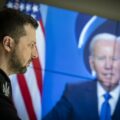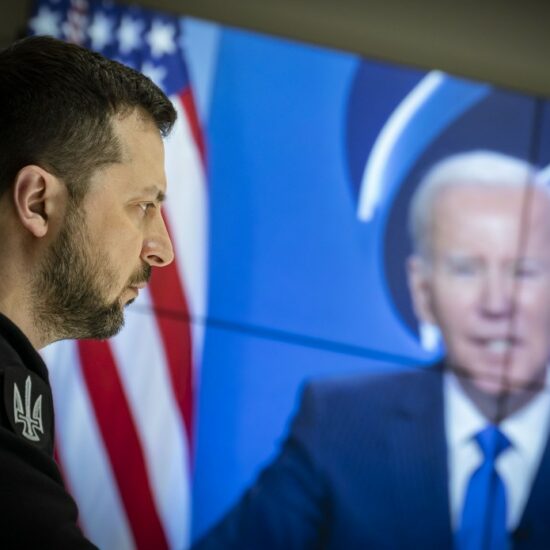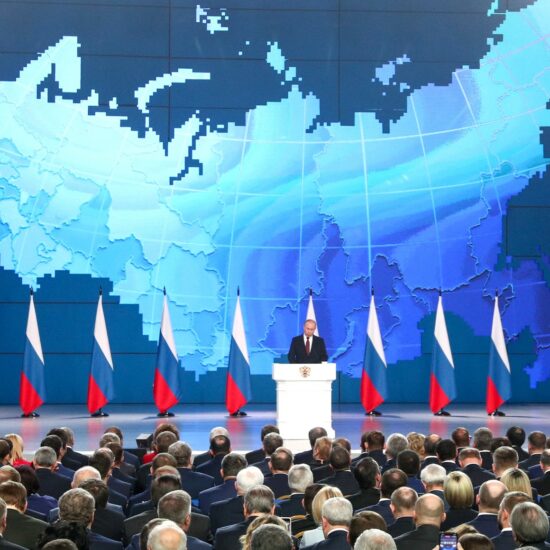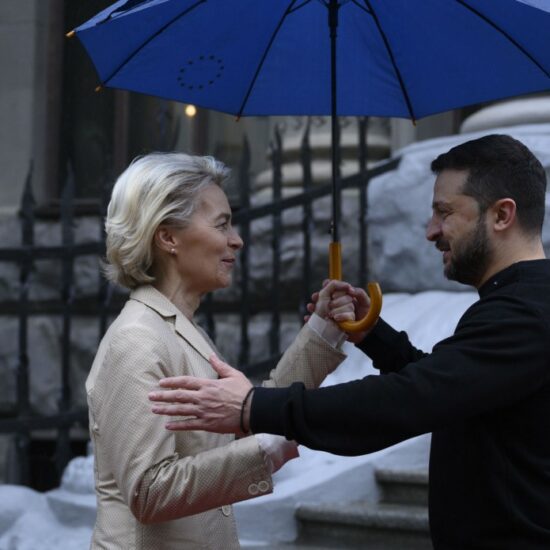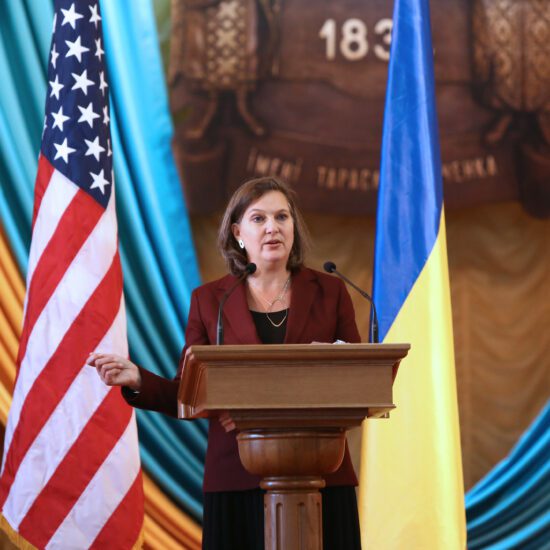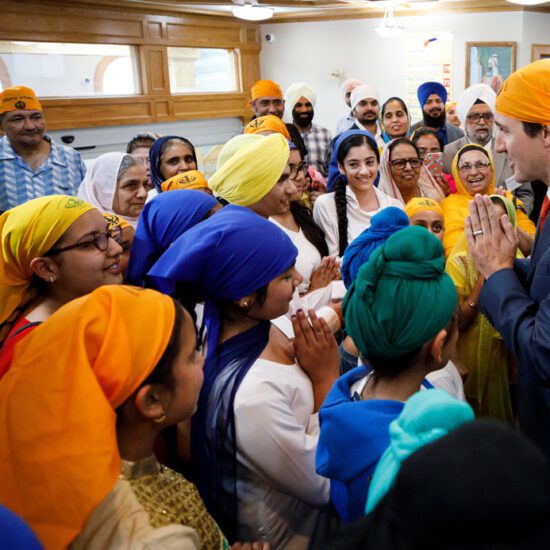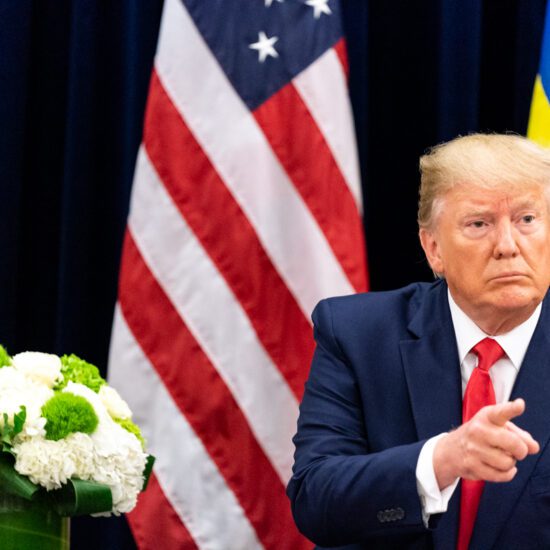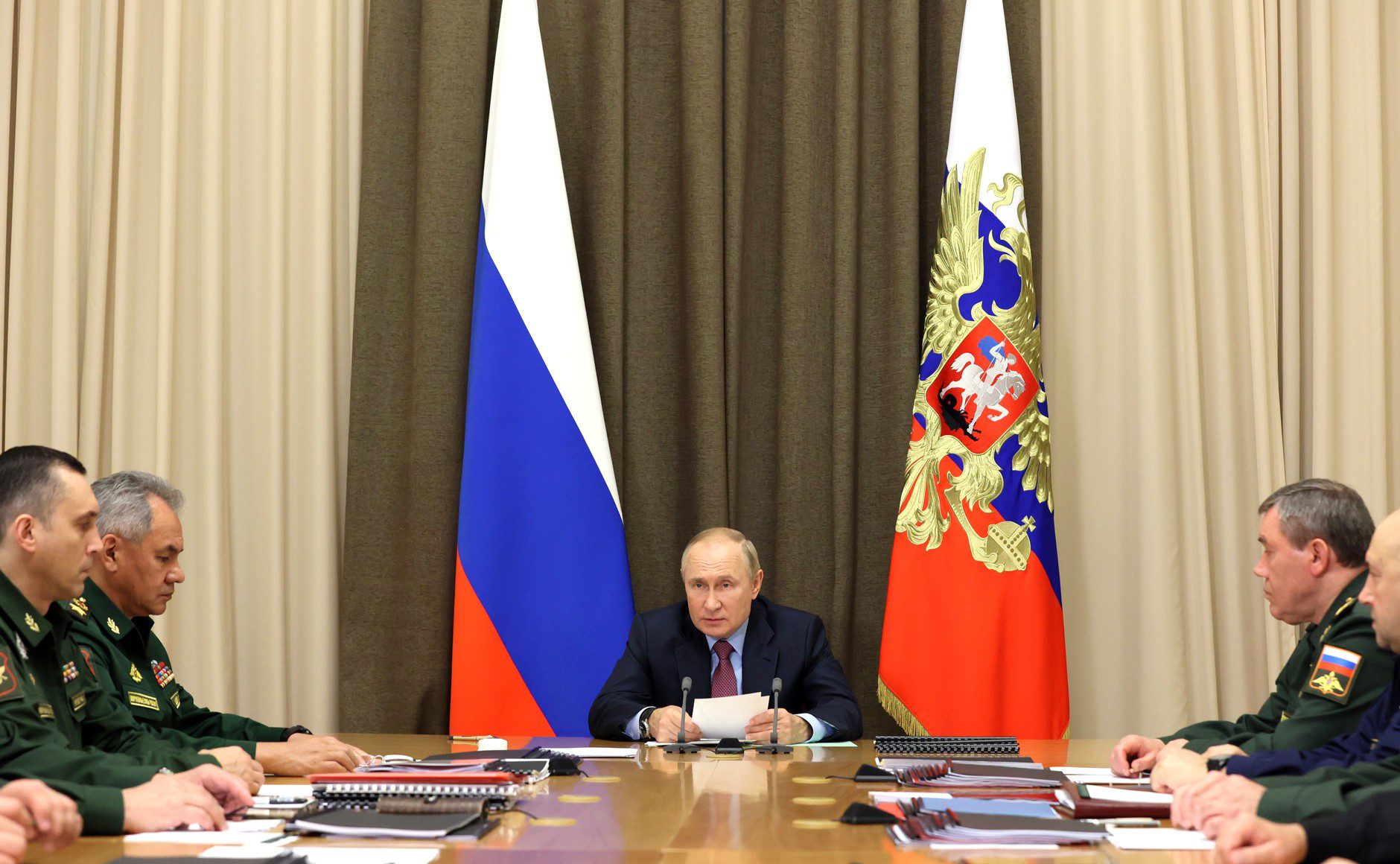
Image credit: Kremlin
Since the invasion of Ukraine last February, it seems like this question has never been so central in people’s minds: will Vladimir Putin use nuclear weapons as a way out of a conflict he has no chance of winning with conventional military means? Indeed, recent reports have indicated that a train has left the Sergiyev Posad base near Moscow in the direction of Ukraine where the unit in charge of the safe-keeping, maintenance, transportation and disposal of Russia’s nuclear arsenal is located, while many embassies of countries close to Russia have recently asked their nationals to evacuate the country: rumours that have fueled Moscow’s willingness to use these weapons of mass destruction at a time when its troops have been suffering major setbacks ever since the Ukrainian armed forces launched a major counter-offensive.
How realistic is this fear? Putin still has reasons to expect that the tide of the war will eventually turn in his favour without having to resort to this extreme option. He has certainly been entertaining with great hopes the prospect of an eventual reduction of US support for Ukraine after the midterm elections. But a nuclear strike remains a scenario that we cannot discard.
A few elements should be taken into account. Russia’s nuclear doctrine has always been articulated around the idea of self-defence and Vladimir Putin knows full well that attacking a foreign country that also possesses such weapons (or an ally of a country that possesses them) would likely result in his own self-destruction according to the principle of mutually assured destruction. This makes a potential offensive strike against a foreign country a rather unlikely possibility.
On the other hand, we tend to forget that the use of nuclear weapons in one’s own country has been a common occurrence during the Cold War. Indeed, more than 2,000 nuclear bombs have been detonated by the United States, Soviet Union, China, Great Britain and France since 1945, with 520 of them being atmospheric explosions. Since all of these tests were performed on these states’ national territory (or in territories under their control), none of them were perceived as acts of war by the international community. In light of this precedent, Vladimir Putin may very well resort to tactical nuclear strikes against targets located on Russia’s territory by claiming that these explosions do not constitute a casus belli but are rather matters of Russia’s national sovereignty.
However, the matter becomes problematic if these strikes are performed in areas deemed to be on Russia’s soil, but that are contested by the international community, namely the four regions that have been annexed by the Kremlin following the recent referendums held in Donetsk, Kherson, Luhansk and Zaporizhzhia. Such a tactical strike with a Hiroshima-size bomb (the equivalent of around 15 kilotons of dynamite that has—all things being equal of course—a rather limited fireball radius of destruction of about 230 meters) in one of these regions would send a strong message to Kyiv aimed at forcing it to the negotiating table: try to regain control of these territories that are now an integral part of Russia (at least, according to the Kremlin’s rhetoric), and your men will have a taste of nuclear fire. The Kremlin would argue that there are more than 2,000 historical precedents to back up its claim that it is not an act of war. It would also be in keeping with its nuclear doctrine, as these strikes would be used to push back enemies that have invaded the territory that Russia claims to be its own and which represent, according to a view held by many in Russia, an existential threat.
The big unknown would of course be the other nuclear powers’ reactions. How would the United States, France, Great Britain and China react to such a strike? If everybody agrees that a nuclear strike against a foreign country constitutes a casus belli and justifies retaliation, things are significantly less clear when a state is resorting to the use of nuclear weapons on its own territory. And although the West has not recognized these annexations and is still considering these four regions as integral parts of Ukraine, they would still have to consider what kind of retaliation against Russia represents strategically a wise course of action, begging the question of how far the West is willing to go to defend Ukraine.
If the Biden’s administration Nuclear Posture Review remains unknown because of its classified nature and has solely said, through the voice of National Security Advisor Jake Sullivan, that a tactical nuclear strike on the part of Russia would lead to “catastrophic consequences”, thus leaving some doubts on what would be the nature of Washington’s reaction, French President Emmanuel Macron has for his part confused people on October 12 by saying that France’s nuclear doctrine was established around the country’s fundamental interests, namely the defense of its territory and the protection of its population, and that as a consequence “it would not be challenged if Russia were to resort to a nuclear tactical strike in Ukraine.” With dissensions within the ranks of NATO’s allies, this could be Putin’s calculation, knowing that the absence of retaliation with nuclear weapons on the part of the West could constitute a de facto recognition that these annexed territories are now parts of Russia. In other words, even if it is not part of Russia’s nuclear doctrine, Putin may conclude that escalating the conflict to such an extreme is actually the best way to deescalate it.
February 24, 2022, will go down in history as a date that has shown Vladimir Putin’s willingness to gamble. If he had the nerve to force events one time, we should not doubt that he may be willing to do so one more time. In light of the numerous shortcomings that his armed forces have shown since the start of the invasion, the general feeling at present may be that he no longer stands a chance of winning this war through conventional military means and that the possibility of a military defeat would virtually signify his own demise as head of state. With his back against the wall and playing for his political survival, he may well be tempted to hit us with a move that has the potential to seriously divide Western powers, especially at a time when public opinion has shifted to other concerns, namely inflation, shortages of fuel and the growing prices of natural gas.
Now that Europeans are starting to feel the impact of their support for Ukraine and have a glimpse of the sort of sacrifices that they will have to endure in the coming weeks and months, many are starting to question the European strategy that was unanimously chosen last February and some political leaders are openly expressing their worries in this regard. It remains an open question whether the “democratic man” – accustomed to peace, security and comfort – is prepared for the difficulties he is about to face in the name of defending superior political values.
Jean-François Caron (@jfrcaron) is an Associate Professor at Nazarbayev University (Kazakhstan) and a Senior Fellow at IPD.

